Our e-learning courses
Every course is created by our pedagogy team, in close collaboration with one or more experts who are responsible for the technical or scientific content of the course.
A typical content page
- Each course consists of simple pages, which cover a particular concept, reinforced by illustrations
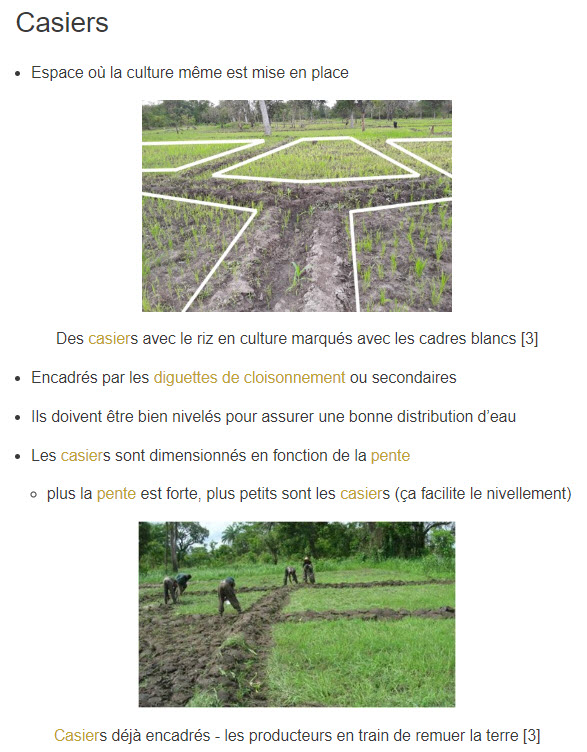
Example: A page with title, text and illustrations
- note the links to the glossary (highlighted in orange)
Chapters and lessons
- The content of a course is organised into chapters that are divided into lessons - each lesson is made of 1 to 6 content pages
- Each lesson ends with a short formative test to reinforce learning
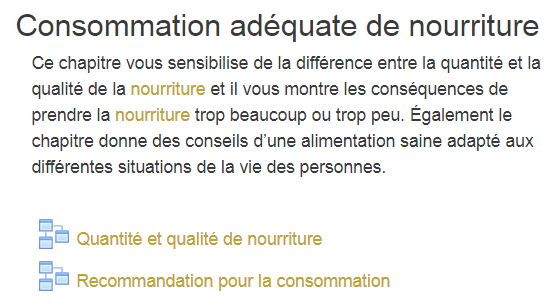
Example: a chapter with its summary
and content divided into two lessons
Formative test
- At the end of each lesson, there is a formative test with at least one question, to help students manage their learning and summarise new knowledge
- These questions are :
- clear and precise
- adapted to the target group
- in harmony with the educational objectives
- helping to consolidate knowledge
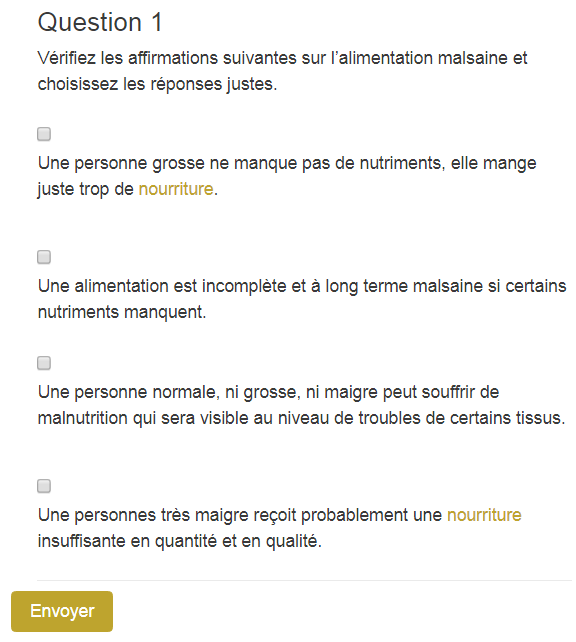
Example: question of a formative test
- question type "Multiple choice"
Final test
- At the end of the course, the student has to pass a final test covering the entire course. this final test is marked - a score of at least 75% triggers the course certificate
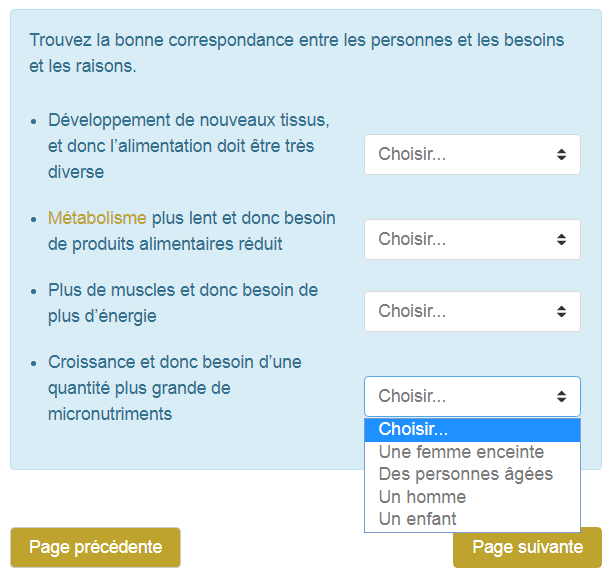
Example: question from a final test
- question type "Correspondence"
Learning objectives and glossary
- The learning objectives are posted at the beginning of a course and every course contains a glossary for essential technical terms
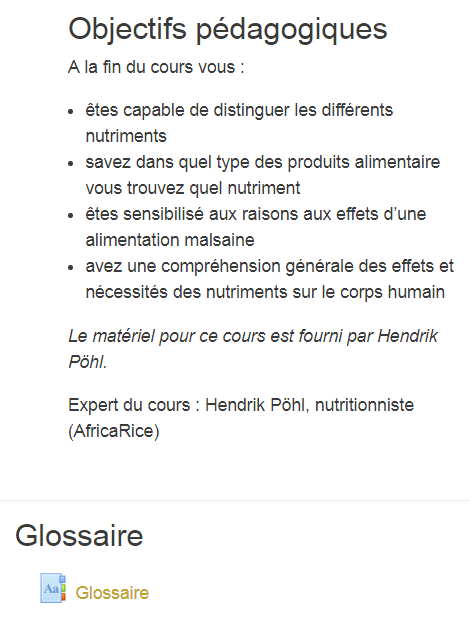
Example: the learning objectives of a course, with
reference to the origin of the content and
the expert in charge of the technical content
- In the glossary, all essential technical terms are defined
- We always use simple and direct vocabulary, but some technical terms are essential and in this case, we define them
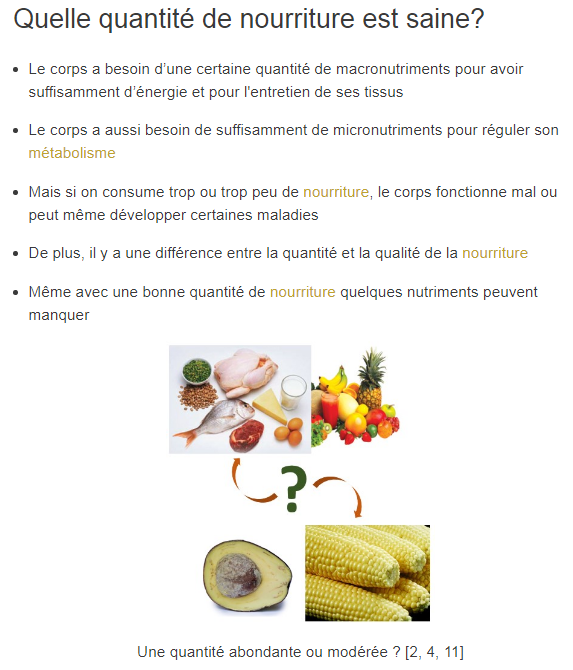
Example: a content page showing the technical terms
explained in the glossary - the highlighted words are
linked to the technical terms defined in the glossary
Try these courses without a log-in!
- These two public courses will give you the chance to try our courses without a log-in (connect with "Connexion anonyme"):
- try navigating between chapters, lessons and course pages - note that without logging in, you are not recognised individually, and some personal tracking features are not available
- try to pass the tests to experience for yourself how they support understanding and learning
- The course "Introduction to our e-learning courses" shows you the structure and navigation of our courses and with the course "Learn how to make pancakes" we present you through a practical case how a subject is structured and treated in a didactic way - you might even want to make pancakes yourself right after taking the course!